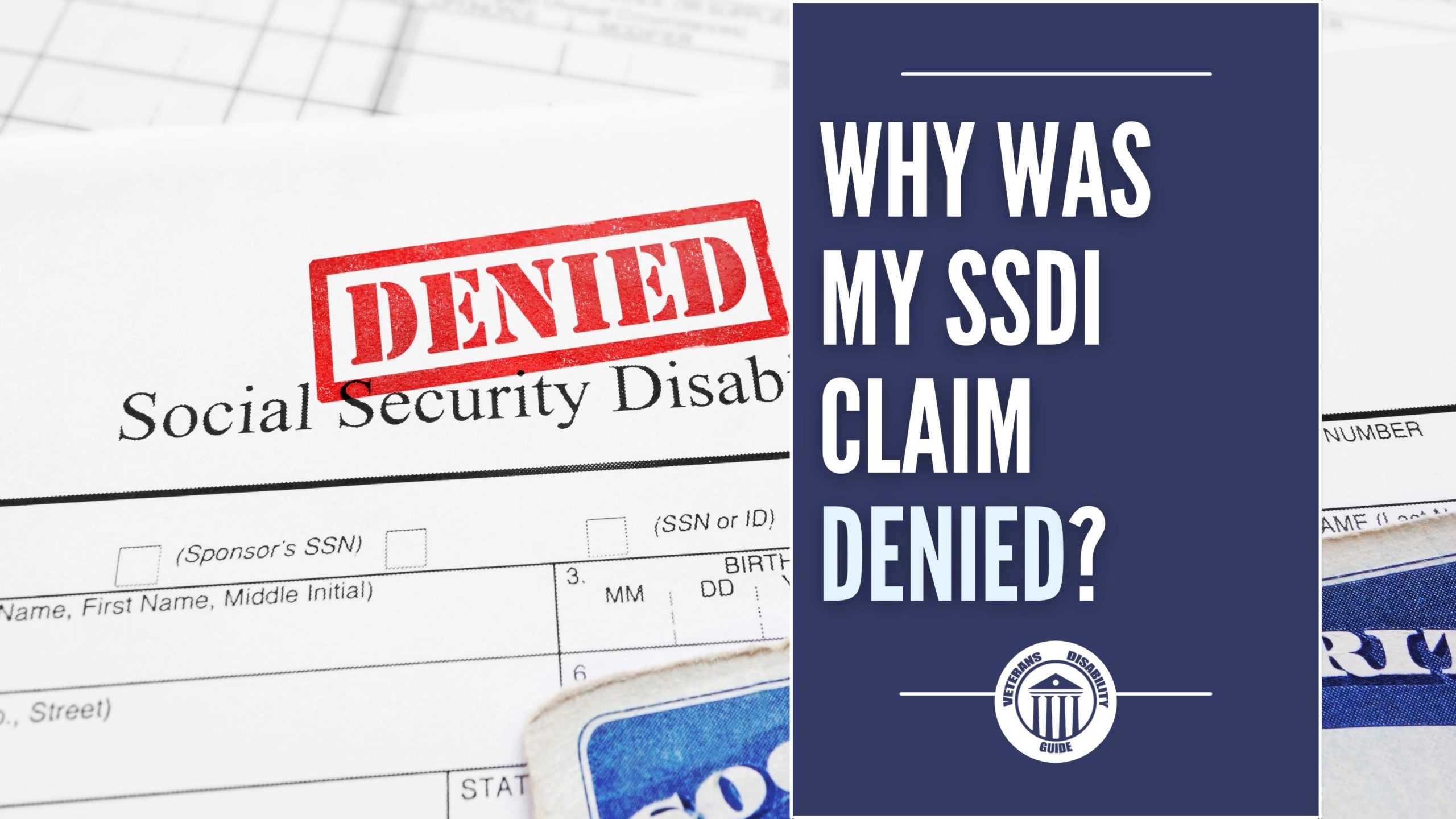
10 Feb Why Was My SSDI Claim Denied?
The 6 Most Common Reasons for SSDI Benefit Denial.
Receiving a denied decision for your Social Security disability insurance (SSDI) claim can be discouraging and frustrating, but it is not uncommon. Nearly 70% of initial claims for Social Security disability benefits are denied. Thankfully, a denied decision does not mean you cannot eventually receive benefits. The first step to appealing your denial and having a successful claim is understanding why you were denied in the first place. Here are the most common reasons that an SSDI claim is denied.
1. A Prior Denial
It is not uncommon for a claimant to receive a denial decision on their SSDI claim and decide to refile a new claim. While this idea may seem like the best route to getting benefits, it can actually increase your chances of another denial.
If your claim is denied, you should begin the appeals process. If you try to start a new claim without going through the appeals process you may be denied again.
See: What is the SSDI appeals process?
2. Earning Above the Income Limit
The Social Security Administration (SSA) has strict qualification requirements for SSDI benefits. One of these requirements is that you must not be working or earning over their Substantial Gainful Activity (SGA) limit. For 2022, the SGA limit is $1,350.
If you are working and earning above this amount each month, you will be denied SSDI benefits.
3. Lack of Medical Evidence
The key factor in qualifying for disability benefits is proof that you currently have a disability. The SSA requires that you provide sufficient medical evidence that they can use to determine if you are disabled. The evidence must be from your treating doctor and other official medical professionals.
The SSA must also be able to determine from the evidence you provide that the disability you have is severe enough to keep you from working for at least one year.
Many claimants assume that if their treating doctor has decided they are disabled, they will automatically earn benefits. This is not the case. The SSA will have final say in if you have a disability that enables you from working. The best way to ensure that Social Security will come to this conclusion is to provide a significant amount of medical evidence.
4. Not Following Treatment Advice or Doctor’s Orders
If a medical professional has found that you have a disability and you do not follow their treatment advice or orders, your SSDI claim could be denied.
The SSA will look at your medical records while determining if you qualify for benefits. If they find that you were given treatment orders for your condition and you did not follow them, they will likely deny you. The SSA examiner can argue that since you did not follow medical advice to treat your condition they are unable to determine the severity of your disability.
5. Failure to Cooperate with the SSA
When you apply for SSDI benefits, you have to cooperate with the SSA’s requests. If you fail to do so, they will deny you of benefits.
The SSA may request additional information or documentation from you and it is in your best interest to give them the paperwork. Often they will request further documentation when they are unable to make a decision based on what you have already given them. Refusal to cooperate with this request often results in a denied claim.
The SSA may also require that you have a medical exam completed by an SSA doctor. If you refuse to have the exam or do not show up for your scheduled exam time, your SSDI claim is likely to be denied.
6. Lack of Work Credits
A common misconception about SSDI benefits is that if you meet the SSA’s definition of disability, you will automatically receive benefits. While it is important that you have a condition that the SSA considers debilitating, it is not the only qualification requirement.
You must also have sufficient work credits to qualify for SSDI. To receive benefits you must have worked and paid into Social Security five out of the last ten years. If you have not done this, the SSA will deny you benefits -Even if you are disabled.
See: What are the SSDI work credit requirements?
Additional Reasons Your Claim may be Denied
Your disability is not severe enough to keep you out of work for at least 12 months.
To qualify for SSDI the SSA requires that your disability will keep you from working for at least a year. If the SSA reviews your medical evidence and does not feel that your condition is severe enough, they will deny you.
Addiction or Alcohol Abuse
If a contributing factor to your disability is addiction or alcoholism the SSA may deny you of benefits. The SSA will review your medical history and documentation. If they determine that you would not be disabled if you did not have a drug or alcohol dependence, they will deny you.
Conviction of a Crime
Conviction of certain crimes and imprisonment can make you ineligible for disability benefits. Any injury you sustained while committing a felony cannot be used to earn SSDI. In addition to this, any injury you sustained while in prison cannot be used for SSDI benefits.
Committing Fraud
If the SSA discovers that you knowling lied about your disability in order to receive SSDI benefits, your payments will be terminated. The SSA may also prosecute you for fraud.
Looking to Appeal a Denial?
If you or a loved one have been denied SSDI benefits, the best option is to begin the appeals process. This process can be overwhelming to many as it requires more paperwork and deadlines to keep track of. Hiring a disability attorney can not only make the appeals processes easier, but also increase the chances of you having a successful claim.
Victory Disability is a nationwide law firm that specializes in assisting disabled workers get the benefits they have earned and deserve. Our services come at no cost to you unless we win your claim. Get started today by taking our free evaluation here. Once you have filled out the form, one of our team members will be in contact to further assist you.


